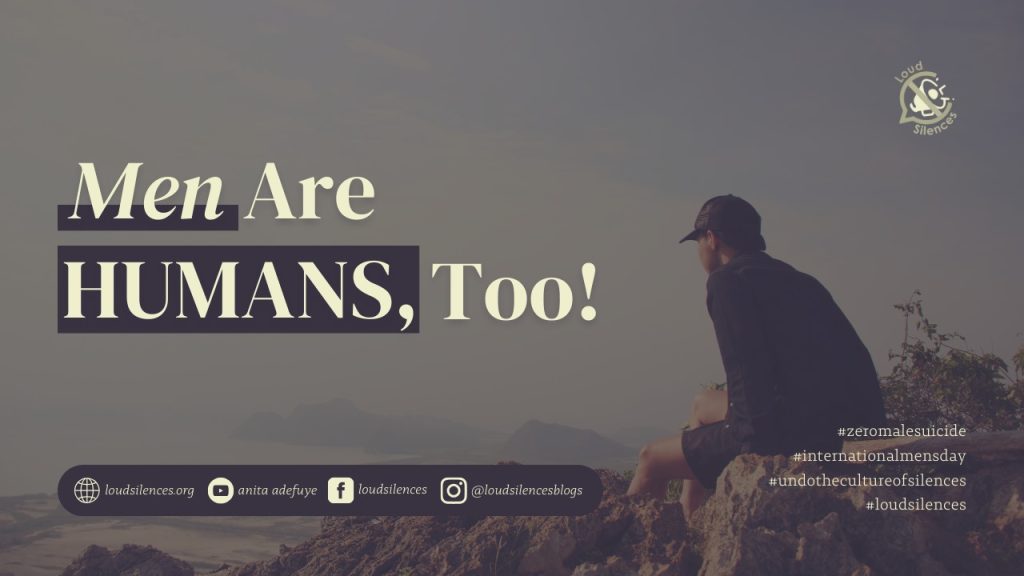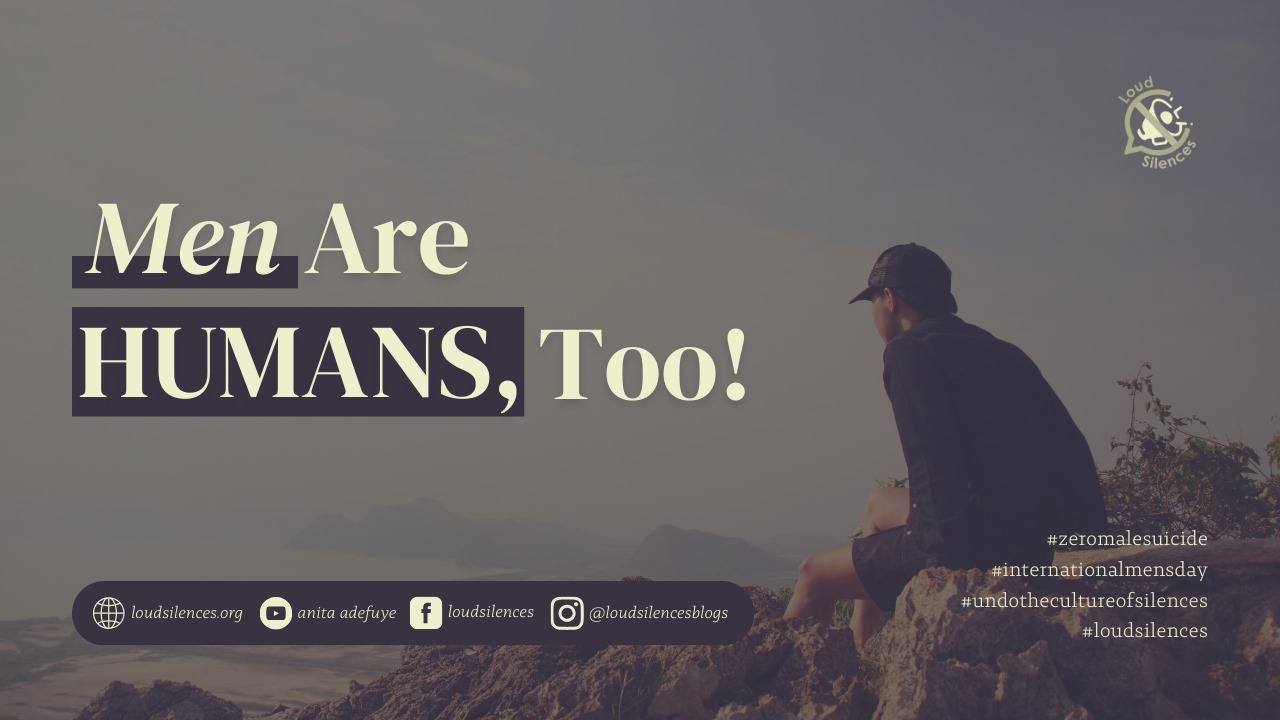International Men’s Day is on Sunday, which is November 19. Let’s begin by saying that we sometimes forget that men are humans like everybody else. Yes, people, men also feel emotions.
Society has set unreasonable standards for how men should behave and respond in certain situations. Little boys, too, are also taught that they can’t be/do this or that because they’re a “man.”
Seriously, at such a young age?

The many standards placed on men are ridiculously burdening to the point that over 6 million men suffer from depression per year. And for many men, depression goes undiagnosed.
See, there is a delicate balance between respecting men for who they are in terms of their masculinity and suggesting that they cannot or should not express “feminine” emotions and be any less of a man.
Understanding the Problem
So, for this year’s International Men’s Day, the theme is “ZERO MALE SUICIDE.” The statistics surrounding male suicide are alarming. Men account for a significant majority of suicide deaths worldwide.
“Suicide will not get you the relief you are looking for; it only causes a whole other cascade of problems that the people you love most in the world have to pick up and carry for you.”
Lori Prichard
Societal expectations, stereotypes, and stigma can create barriers for men seeking help and support when they are struggling with their mental health. These factors contribute to a higher risk of suicide among men.
Which is why we need to recognize that men are humans too.
Let’s look at some symptoms of mental health disorders in men:
- They may have escapist behavior, such as spending a lot of time at work or on sports.
- Physical symptoms , such as include headaches, digestive problems, and pain.
- Also, there could be misuse of alcohol and/or drugs.
- They are controlling, violent or abusive.
- Anger, irritability, or aggressiveness (inappropriate anger).
- Risky behavior, such as reckless driving.
- Noticeable changes in mood, energy level, or appetite.
- They have also have difficulty concentrating, feeling restless, or on edge.
I want you to keep in mind that although women attempt suicide more, men are more likely to complete it. And this is because,
- they use weapons that guarantee death, like guns.
- they may act on impulse.
- they show fewer signs.
“Don’t let the person you love talk you out of your concern for them.”
Lori Prichard
Breaking the Silence
In order to combat male suicide effectively, one of the most crucial steps is breaking the silence around men’s mental health. Men should feel encouraged and empowered to open up about their emotions, struggles, and mental well-being.
Consequently, by creating safe spaces and promoting open conversations, we can play a significant role in reducing the stigma associated with men seeking help.
One way to convince more men to seek help, therefore, is to convince them that the things they need help with are “normal.”
Recognizing Men as Humans
Here are more ways in helping men and showing up for them when they need it.
1. Leading by example
- Men are more likely to engage in therapy, coaching, or meditation when they see positive changes in others. While men may not respond well to being told what to do, they do want to feel better and make changes. Taking care of oneself and finding fulfillment can inspire men to follow suit.
2. The right messenger
- Men are more likely to seek help and support for their mental health when they see other men they admire or respect doing the same. Public figures like Joe Rogan and Tim Ferris have played a role in raising awareness and promoting openness about mental health among men.

3. Having honest and vulnerable conversations
- It’s not easy to be vulnerable. When approaching men about sensitive topics like mental health, it is important to express your own emotions authentically and create a safe space for them to open up. Focus on staying vulnerable and allowing them to feel their own emotions without rushing to find a solution.
4. Make a stand
- This is a “enough is enough” moment. To address male suicide, it may be necessary to take a proactive approach by expressing concern, making therapy appointments, or initiating tough conversations. Sometimes, men respond better when someone fights for them in moments when they are unable to advocate for themselves.
5. Immediate and powerful intervention
- When dealing with potential male suicide, take immediate action and ask direct questions about their thoughts and feelings. Avoid blaming or shaming, and seek help instead of trying to handle it alone.
Zero Male Suicide: A Collective Effort
Achieving the goal of zero male suicide requires a collective effort from individuals, communities, and society as a whole. It involves challenging harmful gender norms, fostering empathy and understanding, and prioritizing mental health support for men.
By addressing the unique challenges faced by men and working together, we can create a world where no man feels hopeless enough to consider suicide.
Let us strive for a future where men are free from the burden of silence, where their mental health is valued, and where zero male suicide becomes a reality. And remember, men are humans, too!
Males, you are not weak for talking about whatever it is you are going through. And you are most definitely NOT WEAK if you choose to talk about your problems.
Temiloluwa Oyelami

Anita Adefuye, the author, shares her story of sexual abuse, low mental health, suicide, and how she overcame them all. Today, she is the founder of LoudSilences and more.
Her book, Reve-Healed – A true story of pain, healing, and hope, is available for purchase. Get yourself a copy today!

Leave a Reply